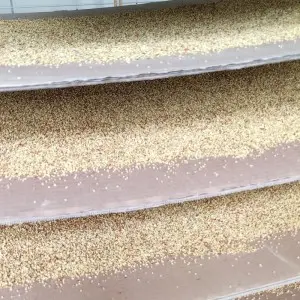Dec . 04, 2024 16:34 Back to list
Enhancing Trees with Custom Apricot Pollen for Optimal Growth and Yield
Understanding Custom Apricot Pollen on Trees
The cultivation of apricot trees has been a cherished agricultural practice for centuries, particularly in regions with temperate climates. Among the various aspects that contribute to healthy apricot yield, the role of pollen is paramount. Custom apricot pollen, specifically tailored to enhance the pollination process, is gaining recognition among farmers and horticulturists. In this article, we will delve into the importance of apricot pollen, the benefits of custom pollination methods, and their impact on apricot tree health and productivity.
The Role of Pollen in Apricot Cultivation
Pollen is the male gamete of flowering plants, including apricot trees. Successful pollination is crucial for fruit set, as it leads to fertilization and the formation of fruit. Apricot trees generally rely on cross-pollination, which occurs when pollen from one tree fertilizes the flowers of another tree. This process increases genetic diversity and can lead to improved fruit quality and yield.
However, not all apricot pollen is created equal. Different varieties of apricot trees produce pollen with varying characteristics, including the quantity of pollen produced, its viability, and its compatibility with other apricot varieties. Custom apricot pollen allows farmers to select the most compatible and viable pollen sources tailored to their specific orchards, leading to better pollination rates and fruit production.
Benefits of Custom Apricot Pollen
1. Improved Genetic Compatibility By selecting pollen from apricot varieties that are known to be genetically compatible, orchardists can enhance the chances of successful fertilization. This can result in healthier and more robust fruit sets.
2. Increased Yield Custom pollination can lead to significantly higher yields compared to traditional methods. Studies have shown that orchards utilizing specifically chosen pollen sources can produce more fruit per tree, improving overall farm productivity.
3. Enhanced Fruit Quality The quality of fruit produced is often linked to the quality of the pollen used in the pollination process. Custom apricot pollen can increase fruit size, sweetness, and shelf life, making the harvest more marketable.
4. Mitigation of Environmental Factors In some regions, adverse weather conditions can severely limit natural pollination. Custom pollen solutions can be introduced at optimal times to assist in pollination when natural pollinators, such as bees, may be less active.
custom apricot pollen on trees

5. Targeted Solutions for Specific Varieties Different apricot varieties may have unique pollination needs. Custom pollen allows for targeted solutions that cater to the specific requirements of the apricot trees in an orchard, optimizing their growth and productivity.
Implementing Custom Pollination Strategies
To successfully implement a custom apricot pollen strategy, orchardists should consider the following steps
1. Assessment of Varieties Identifying the apricot varieties in the orchard and their respective pollen compatibility is crucial. This requires a thorough understanding of which varieties cross-pollinate effectively.
2. Pollen Collection Gather pollen from selected compatible apricot varieties. This can be done by harvesting pollen during the flowering season, using techniques that protect its viability.
3. Pollen Application The custom pollen should be applied at the right time during the flowering phase when the female flowers are receptive. This may involve hand pollination techniques or the use of specialized equipment to ensure coverage.
4. Monitoring and Adjustments After implementing custom pollination strategies, ongoing monitoring is essential. Orchardists should assess fruit set rates, size, and quality, making adjustments to their methods as needed.
Conclusion
Custom apricot pollen represents a promising advancement in the field of fruit cultivation. By harnessing the power of tailored pollination methods, farmers can enhance the productivity and quality of apricot trees significantly. As the global demand for apricots continues to rise, understanding and implementing effective pollination strategies will be critical for sustainable and successful apricot farming. Whether you are a seasoned orchardist or a newcomer to the field, exploring the potential of custom apricot pollen could be the key to unlocking an abundant harvest.
-
Fruit Paper Bags: Protect from Plant Pollen & Pests
NewsAug.08,2025
-
Plant Pollen Guide: Types, Uses & Artificial Pollination
NewsAug.07,2025
-
High-Viability Male Kiwipollen for Sale | Boost Yield
NewsAug.06,2025
-
Eco Fruit Paper Bags for Peak Freshness | Durability Focused
NewsJul.31,2025
-
Pollen Peach Tree for Pure Pollination and High-Quality Peach Pollen
NewsJul.30,2025
-
Premium Cherry Pollen for Pure Pollination & Different Types
NewsJul.30,2025